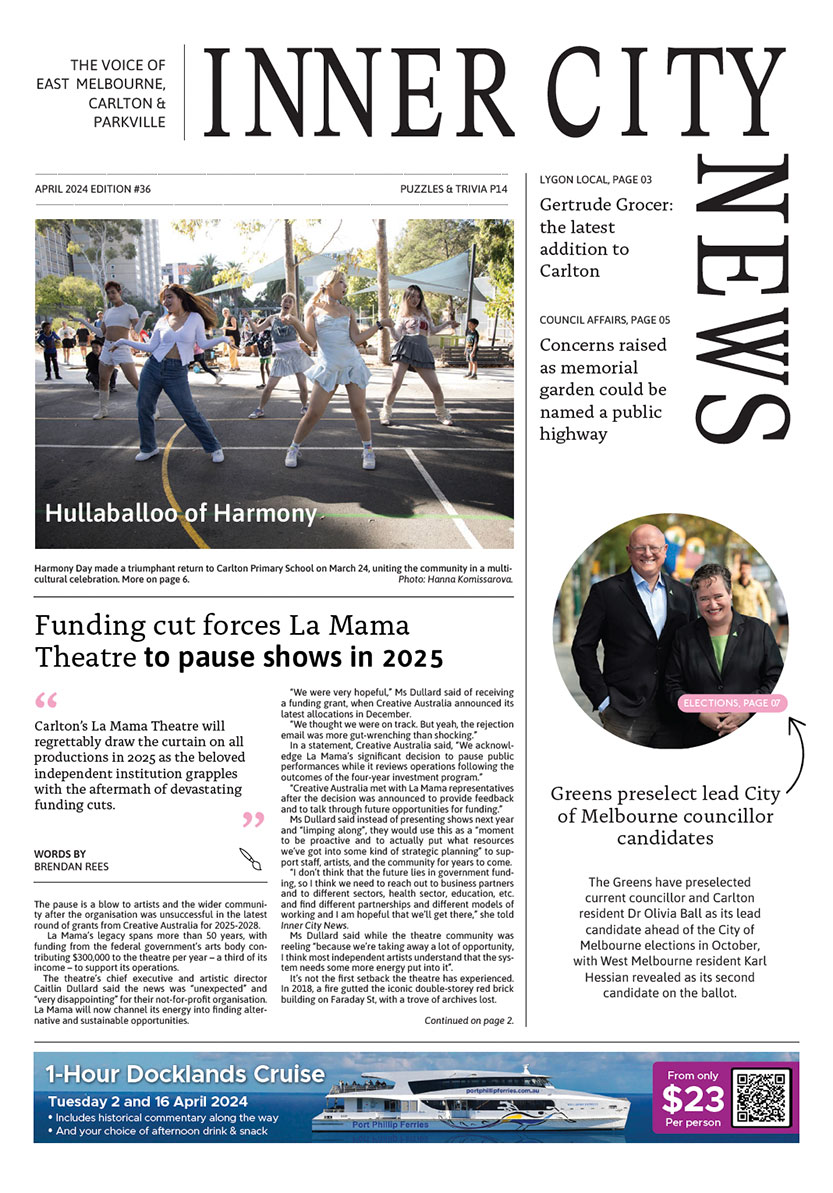The lost empire of Putin
A new, informative book delves into the mindset of Russian president Vladimir Putin and puts the conflict in Ukraine into an historical perspective.
Professor Mark Edele, deputy dean at the University of Melbourne, is an expert on Soviet history.
Misinformation about the issue has prompted him to write a book for the general public.
Russia’s War Against Ukraine was launched at Readings on August 23 to an audience of around 30 people.
Professor Edele dives straight into the heart of the matter in the book by asking why a 69-year-old leader would suddenly go to war with a neighbour.
His analysis provides a dramatic picture of a leader still dealing with the trauma of World War II and trying to come to terms with Russia’s demise as a world power.
In a frank interview with Inner City News, the professor said that we shouldn’t feel sorry for Putin but try and understand him.
“The man has stolen from the people, destroyed Russian democracy, is responsible for his opponents being shot and poisoned. He is not a nice guy,” the professor said.
But historians try and understand the evolution of nations over time and realise that decisions are made in situations with a lack of clarity. Understanding how this comes about intellectually is sometimes called “cold empathy”.
Putin, according to the professor, was born in 1952 in Leningrad, a city under blockade by the Germans during the war. He lost his older brother.
“Putin thinks a lot about World War II. He’s obsessed with writing about it. A lot of countries are obsessing over the war in Eastern Europe,” he explained.
Children grow up with the trauma of their parents. Putin has written quite eloquently about his father. His father was involved in the defence of Leningrad. He clearly grew up with notions of what a trauma was. He observed it over the years and likes meeting with historians.
During the pandemic, Putin spent a lot of time alone writing. His essay on the war was written in 2020.
The Second World War has also been transformed into works of art in Russia – literature, movies, computer games. This war cult provides collective therapy, according to the professor, but it is “toxic therapy akin to self-medication”.
The other significant factor is the decolonialising one facing a number of nations, including Britain. After the break-up of the Soviet Union, Ukraine was able to rebuild into a robust democracy but Russia was in a state of loss.
“Never has Russia been a state until 1991. It’s always been an empire. It’s now a truncated empire,” the professor said.
The book details Putin’s attempt to regain world status with his ill-fated attack on Ukraine and his underestimation of the military expertise of many in the civilian population.
He said that Brexit in the United Kingdom was another response by a former empire struggling with its new role in world politics.
The professor has Russian dolls on his shelf depicting Putin and Chernenko and this is about as close as he’ll be getting to Russia in the near future.
“At the moment I can’t go to Russia. It’s difficult to get a visa. The advice is not to travel,” he said. Luckily the KGB archive is in Kyiv.
Russia’s War Against Ukraine, Mark Edele, University of Melbourne Press.

Fight against offensive graffiti ramps up



 Download the Latest Edition
Download the Latest Edition